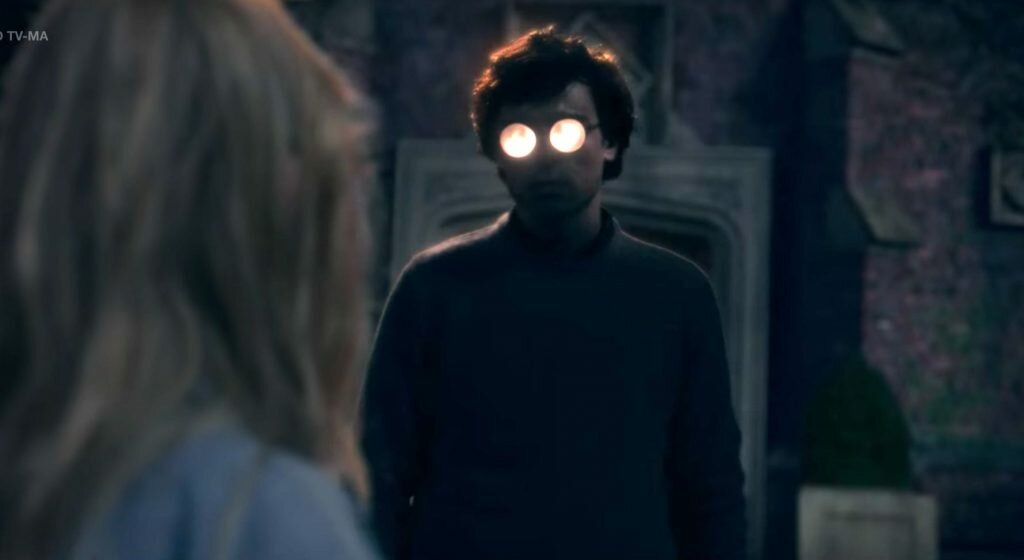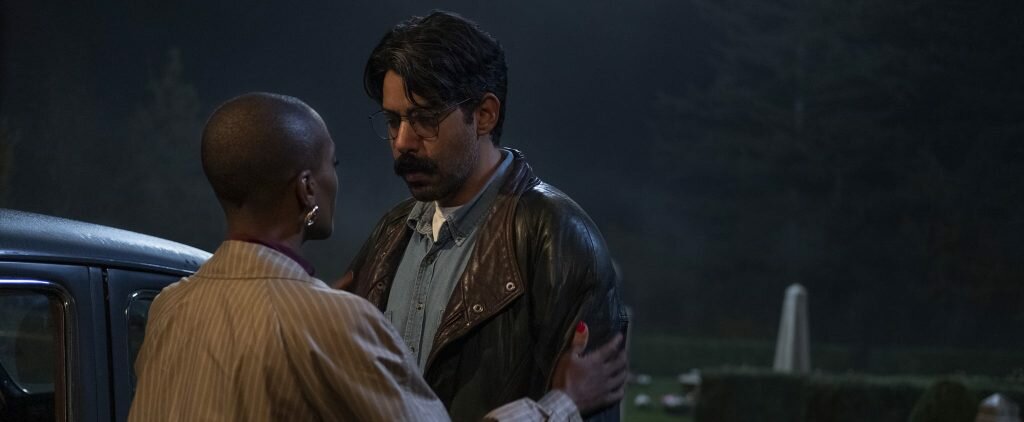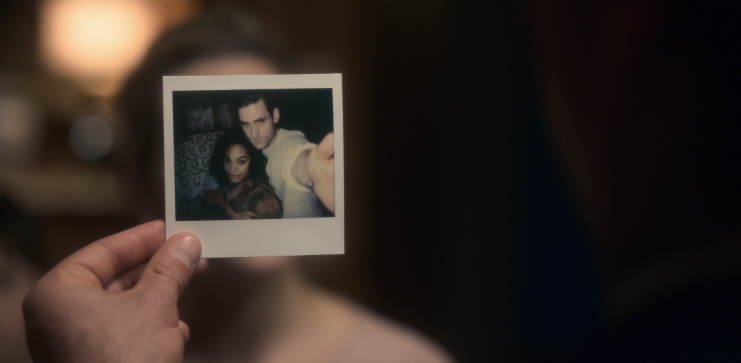Every Love Story is a Ghost Story, An Exploration Of ‘The Haunting of Bly Manor’
“To truly love another person is to accept the work of loving them is worth the pain of losing them.” (Owen Sharma, Haunting of Bly Manor, Episode 1 ‘The Great Good Place’)
Disclaimer: This article contains spoilers for Haunting Of Bly Manor in full detail, so if you haven’t seen the show, beware of them.
As I mentioned in my analysis of Haunting of Hill House, horror can be a vehicle to explore many different ideas and narratives through the lense of the paranormal or the supernatural. Ghosts can have different meanings, and it all depends on the story you’re telling and the way you’re saying it. Mike Flannagan is creating masterstrokes with this idea in mind.
It could be said, and has been said by some, that Bly Manor is “less scary” than Hill House, but the truth is that it’s just a different kind of horror. In Bly Manor, Flannagan decided to focus more on a gothic horror-esque atmosphere, as well as the themes that the subgenre explores. Love, death, horror and tragedy are plaguing the 9 episodes of this anthology series, waiting for us at every corner to explore the mysteries behind Bly Manor.
Haunting of Bly Manor is a loose adaptation of the Henry James story, The Turn of the Screw, where a governess is in charge of two kids who recently lost their parents and her predecessor died on the grounds of the manor. The show diverges from the story as it also includes elements from different stories of the author. In fact, every episode is named after a different story of James, and that episode explores the main themes of the story it references, sometimes even including plot points from that particular narrative.
Escapism, jealousy, rejection and guilt are some of the minor themes touched throughout this series, but I’d say that three of the core themes of the show are how is it like to love and be someone who suffers from a mental illness that makes them forget, how people tend to mix love and possession with one another and how easy it is to get trapped in our own lives. But mostly, it’s about memory.

The allegory to loving and taking care of someone who is on the path to forget who they are, is present from the very beginning of the show, when Owen Sharma, the cook of the manor, introduces himself to Dany, our protagonist, the American au pair, and tells her that the only reason he came back to Bly was to take care of his mother who suffers from dementia. From then on, Owen’s storyline is partially aligned to this decision and it’s clear to the viewers that while he loves and cares deeply for his mother, he resents her for having to be “stuck” in Bly to take care of her. But is his guilt over that resentment that carries him on, oppressing his sorrow, making it a “vicious cycle” which he’s unable to escape as long as he dedicates his life to service her.
“She was gone long before she died … and all I could do was let her hang on to me until it was time to let go. And soon I’ll let her go, too.” (Owen Sharma, Haunting of Bly Manor, Episode 4 ‘The Way It Came’)
Then, we have Hannah Grose, the housekeeper, who at first seems odd and distracted in her day to day life, constantly forgetting what she was doing before and looking like she’s lost in a daydream more often than not. She seems trapped in her own world, happy but oblivious, until we learn the truth in episode five. And what a horrifying reality it is, as we learn that Hannah has been dead the entire time we’ve known her, and the reason for her forgetfulness and her distracted demeanor is because she hops from memory to memory, unable to come to terms with her untimely death as she wishes to stay around for the kids she loves so much. She sees life literally pass her by, unable to move on. She’s no longer present, even though everyone else sees her like that.
We grieve alongside her the possibility of love she had with Owen, knowing that these two people loved each other but were unable to fulfill their love, due to their own personal fears. These two people who dreamed of moving away to fulfill their goals, ultimately had their fate cut short by death and tragedy. She revisits time and time again to the first time she met Owen, feeling happy and content, even when she knows it’s just a memory that, with time, will fade away. With her, we have a physical representation of memory decay, as Flannagan himself explained.

And then we have Dani, who in the last episode makes a deal to save the life of Flora, the little girl in her charge, and takes on the ghost of Viola, the ghost responsible for all the suffering in Bly Manor. Dani, with a clock ticking inside her head, counting down the days until she’s completely possessed by Viola’s ghost, is taking her future one day at a time, and afraid of making plans as “it could happen any day, and she’ll stop being herself.” But it’s Jamie, the gardener of the manor and her love interest, that tells her that that’s not too different from what the rest of the world has. They just have to take it one day at a time, making the most of it until the time comes.
Dani, prior to meeting Jamie, was haunted by the death of her fiance and the guilt she felt over it, as he died literally minutes after she broke up the engagement. She was trapped in her guilt, unable to move on as long as she carried that guilt with her. Meanwhile, Jamie, was content with forming no attachments due to her own past, until she met Dani, with whom she decided to make a commitment even if they were living “on borrowed time.” She realized that even if it meant losing her in the end, the memories they’d build together would be enough to carry her on.
Which is when we enter our second core theme, possession and love getting mixed up. Because while Dani and Jamie loved each other unconditionally, choosing each other every day until the time to say goodbye came, there’s another relationship shown throughout the series that is deeply rooted in possession and “a gravity pull that you can escape.”
“People do, don’t they? Mix up love and possession. I don’t think that should be possible. They’re opposites really: love and ownership.” (Dani Clayton, Haunting of Bly Manor, Episode 8 ‘The Two Faces, Part One’)
As a “secondary” love story, we have the relationship of Peter Quint and Rebecca Jessel, two prior employees of Bly Manor who bonded over their shared experiences of growing up middle class and working for Henry Wingrave, uncle of Miles and Flora and owner of Bly Manor. It is clear from the very beginning that this relationship is not exactly healthy, or ideal, but as it grows, they become entrapped in one another, unable to escape.

He considers Rebecca his to possess and own, which ultimately leads to her death. He dies at the hands of “The Lady of the Lake,” Viola, who refused to die out of possessiveness over her family and grounds, becoming a gravity well that would eventually lead to the events of the show, and when he understands he’s unable to leave Bly, he decides to drag Rebecca to that same fate, leaving her alone in those final terrifying moments. Because he wants her with him for eternity, even if that means condemning them to eventually being forgotten by those who knew them.
But when Dani and Jamie are faced with the same scenario, Dani refuses to trap Jamie with her, condemning her to a fate as a faceless ghost. Because she understands that Jamie is not hers to own, to possess and control, but only hers to love and cherish for whatever time they have, no matter how short or long that is. Because love is the opposite of possession, something Rebecca understands until it is too late for her.
But that’s not the only love that feels possessive on Bly, because as I mentioned before, Viola Willoughby-Lloyd, the ghost responsible for everything that happens at Bly, refused to die even when it would’ve been for the best of everyone around her. She clung to a life that eventually became her prison, turning her into an entity who traps everyone around her in their own memories, forcing them to fade with time until they’re nothing but faceless ghosts, pale impressions of who they once were.
“All things fade. All things. Flesh, stone, even stars themselves. Time takes all things. It is the way of the world. The past recedes, memories fade, and so, true, does the spirit.Everything yields to time, even the soul.” (The Narrator, Haunting of Bly Manor, Episode 8 ‘The Romance of Certain Old Clothes’)
At the end of the day, memories are all we have. The memories of our past are the ghosts that continue to live on as long as we remember them. That’s all we have left the moment we die, the memories we leave with those we love. Indeed, “dead doesn’t mean gone”, because as long as we have our memories intact, those who we love are still around. It’s the loss of our memories that truly kills us in the end. However, it is easy, so easy to get trapped in your own memories, so sometimes, just sometimes, it’s okay to let go. And other times, well those are perfect to leave the door open just a little to let the memories come.
If you’d like to read more from Maríe Garduño, you can find their stuff here!